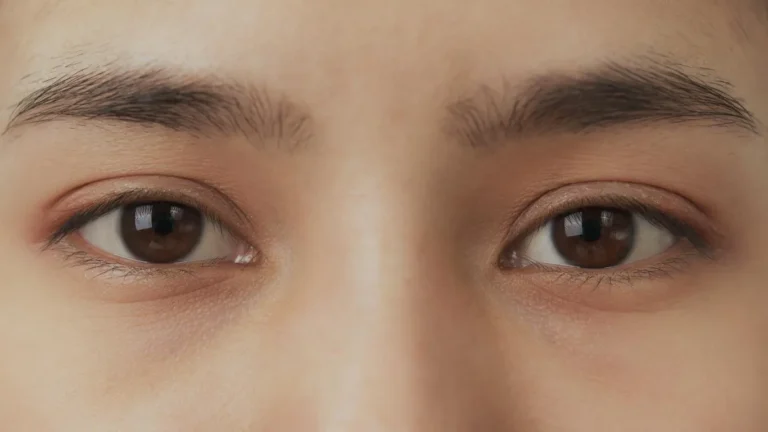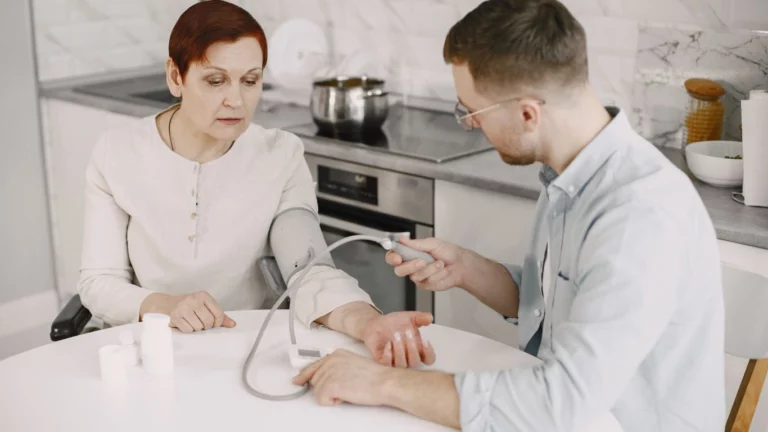Can GERD Cause Sleep Disruption? – Everything You Need to Know
Have you ever tossed and turned at night, wondering why your chest feels like it’s on fire, or why your throat has that weird, acidic tickle just as you’re drifting off? That was me a few years ago—working late, eating even later, and waking up multiple times every night like clockwork. It took months of frustration and way too many sleep-deprived mornings to figure out that my sleep issues were tied to something deeper than just a bad bedtime routine. Turns out, it was GERD. And if you’ve ever asked yourself, “Can GERD cause sleep disruption?”—you’re not alone. Let’s unpack this in a way that’s not just scientific, but personal and helpful, too.
Why GERD and Sleep Don’t Mix Well

GERD—short for gastroesophageal reflux disease—isn’t just about the occasional heartburn. It’s a chronic condition where stomach acid flows backward into the esophagus. This backward flow, especially when you lie down, can be brutal on your sleep cycle. And yep, I learned that the hard way.
When I finally saw a gastroenterologist, they explained something that hit home: lying flat makes it easier for acid to creep up the esophagus. That means your sleep is fair game for disruption. Your body’s natural healing and reset time—sabotaged by stomach acid.
Common Nighttime GERD Symptoms That Interrupt Sleep
- Heartburn that gets worse when lying down
- Coughing or choking at night
- Regurgitation of food or sour liquid
- Sore throat or hoarseness in the morning
- Sleep apnea or breathing interruptions (yep, GERD can be a trigger)
These symptoms can show up even if you’re using pillows. In my case, I realized stacking pillows just wasn’t cutting it—it actually made my neck sore and didn’t really stop the acid. More on that solution later.
How GERD Impacts Sleep Architecture

Your body cycles through several stages of sleep, including deep restorative sleep and REM (rapid eye movement) sleep. When GERD flares up in the middle of the night, it causes micro-arousals—little interruptions that pull you out of the deeper, more restorative stages. You might not fully wake up every time, but your brain does. Over time, this can leave you feeling exhausted even after “eight hours” of sleep.
According to the National Institute of Diabetes and Digestive and Kidney Diseases (NIDDK), GERD is a known disruptor of both sleep quality and quantity. Some studies even suggest people with GERD are more likely to suffer from insomnia and fatigue.
Sleep Positions That Can Make or Break Your Night

Here’s a gem I wish I had learned earlier: sleeping on your left side can significantly reduce reflux episodes. There’s actual science behind this. The stomach sits lower than the esophagus when you’re on your left, which helps keep acid where it belongs.
Best and Worst Sleep Positions for GERD
- Best: Left side sleeping – keeps acid trapped where it belongs
- Okay: Elevated head of bed – more effective than extra pillows
- Worst: Right side sleeping or flat on your back – encourages reflux
If you’re struggling, these GERD sleep strategies are worth bookmarking. I eventually invested in a wedge pillow and tilted my entire mattress setup slightly with risers—game-changer. No more pillow mountain!
Why Nighttime Reflux Is Worse Than Daytime Reflux

Daytime reflux is annoying, but nighttime reflux is dangerous. That’s because when you’re asleep, you swallow less and produce less saliva. And saliva helps neutralize stomach acid. Without that, acid just lingers in the esophagus longer, potentially causing damage like inflammation or strictures over time.
Also, gravity isn’t helping you while you’re lying flat. That’s why lifestyle changes for GERD like eating earlier dinners (think 3 hours before bed) and avoiding heavy nighttime snacks made a huge difference for me.
Hidden Impact: GERD and Sleep Apnea

Here’s something many people miss: GERD and sleep apnea often go hand-in-hand. If you snore, wake up gasping, or feel unusually tired during the day, it’s worth considering a sleep study. I ignored those signs for too long.
Research shared by Cleveland Clinic has shown a bidirectional relationship between GERD and sleep apnea. Meaning: GERD can worsen apnea, and apnea can make reflux worse. Treating one often improves the other.
For me, once I began managing GERD seriously—early dinners, left-side sleeping, no late-night coffee—my sleep started to improve. I even stopped waking up with that awful burning in my throat. It wasn’t overnight, but it was worth it.
Nightly Habits That Can Either Help or Hurt GERD

I used to think popping an antacid before bed was enough. Spoiler: it’s not. Managing GERD at night requires a full-circle approach—especially when it comes to what you do (and don’t do) before you hit the pillow. Over time, I built a nightly routine that not only helped with my reflux, but made my overall sleep better. Here’s what actually made a difference.
Night Routine Adjustments That Help
- Stop eating at least 3 hours before bed: This lets your stomach empty and reduces the risk of acid sneaking up while you sleep.
- Skip the nightcap: Alcohol loosens the lower esophageal sphincter (LES), making it easier for acid to back up.
- Limit caffeine and chocolate after 3 PM: Both can mess with the LES and your sleep quality.
- Go for a gentle walk after dinner: Just 10-15 minutes can aid digestion before bed.
- Switch to herbal tea: Chamomile or slippery elm tea has been a bedtime favorite in my GERD toolbox.
One other thing? I stopped lying on the couch right after dinner. Sitting upright or walking made a difference. Lazy lounging = instant regret.
Elevating Your Sleep Setup for Maximum Comfort

Most people grab a few extra pillows to sleep on, thinking it’ll help. I did too. Unfortunately, stacking pillows can bend your neck and cause more problems. What worked better for me was investing in a foam wedge pillow or even elevating the entire head of the bed about 6 to 8 inches. That slight incline keeps gravity on your side.
According to Sleep Foundation, elevation can reduce nighttime reflux episodes significantly. It’s a small change with big impact—no fancy gadgets required.
Elevation Options That Work
- Foam wedge pillows (not just regular pillows)
- Adjustable bed frames with head elevation features
- DIY bed risers (just be sure the incline is stable and not too steep)
This adjustment felt awkward at first, but after a few nights, it felt normal—and my middle-of-the-night burning stopped. You know that feeling when you wake up and don’t feel like a fire-breathing dragon? Yeah, that.
Medications and Supplements: Nighttime Use Matters

If you’re already on a medication for GERD, timing it right can be a game-changer. I didn’t realize that some proton pump inhibitors (PPIs) are more effective when taken 30-60 minutes before dinner, not before bed. That little shift helped reduce nighttime flare-ups by a lot.
There are also natural supplements that can support sleep while easing GERD symptoms, though always talk to your doctor first. I personally had success with low-dose melatonin—it didn’t just help me sleep, it also appeared to reduce acid production a bit (as seen in a few emerging studies).
Common Nighttime Aids for GERD Relief
- PPIs (omeprazole, esomeprazole) – for long-term control
- H2 blockers (ranitidine alternatives) – can be helpful at night
- Alginates – create a barrier to reduce reflux episodes
- Melatonin – helps with both sleep and gastric health
- Slippery elm or marshmallow root – soothing herbal options
Some people find melatonin for nighttime heartburn especially helpful when taken consistently. I was skeptical too—but it was mild, natural, and didn’t mess with my mornings.
The Gut-Brain-Sleep Connection

This part fascinated me the most: the relationship between your gut and brain isn’t just about food—it’s emotional, too. Chronic reflux impacts your mood, stress levels, and yes, sleep. And guess what? Poor sleep also makes GERD worse. It’s a vicious loop.
One of the biggest breakthroughs for me came from combining my sleep hygiene with stress management. A simple 5-minute breathing session before bed made a surprising difference. Calmer mind, calmer stomach.
Stress and sleep are big topics in GERD research, too. Cleveland Clinic highlights how chronic stress can reduce LES pressure and slow digestion—making reflux worse at night.
When to See a Specialist

If you’ve tried every sleep position, diet change, and pillow stack you can think of—and you’re still waking up coughing or choking—it might be time to get evaluated. GERD isn’t always “just” reflux. Long-term exposure to acid can lead to esophageal damage or even more serious complications if left unchecked.
A specialist may recommend an endoscopy, pH monitoring, or even a sleep study to rule out related issues like sleep apnea or laryngopharyngeal reflux (LPR).
Also, if you’ve experienced untreated GERD symptoms for a while, it’s best not to assume it’s “just part of life.” There are more solutions than ever—medical and natural—and it’s all about finding what actually works for your body.
Waking Up Refreshed: It’s Possible with the Right Strategy

It took me a while to connect the dots between my restless nights and my reflux. But once I did—and took real steps to manage it—everything changed. Better sleep, better mornings, and a whole lot less anxiety around bedtime. If there’s one thing I learned, it’s this: don’t settle for sleeping poorly. GERD is common, but that doesn’t mean it should be normal.

Camellia Wulansari is a dedicated Medical Assistant at a local clinic and a passionate health writer at Healthusias.com. With years of hands-on experience in patient care and a deep interest in preventive medicine, she bridges the gap between clinical knowledge and accessible health information. Camellia specializes in writing about digestive health, chronic conditions like GERD and hypertension, respiratory issues, and autoimmune diseases, aiming to empower readers with practical, easy-to-understand insights. When she’s not assisting patients or writing, you’ll find her enjoying quiet mornings with coffee and a medical journal in hand—or jamming to her favorite metal band, Lamb of God.







